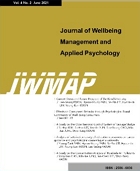 E-ISSN : 2586-6036
E-ISSN : 2586-6036
Abstract
The purpose of this study was to empirically investigate the relationship among fashion brand experience, brand loyalty, relationship quality, and repurchase intention. The 420 survey questionnaires were distributed among the consumers in their 30s and 40s who had experience buy fashion brands products through convenience sampling in Seoul. Due to the reliability of data, 120 samples were discarded and 300 samples were put to actual analysis. By using SAS 9.4, data were analyzed for frequency analysis, reliability analysis, correlation analysis. The results of the study are as follows. First, the fashion brand experience which is consist of sensory, affective, behavioral and intellectual experience had positive effects on brand satisfaction and brand trust. Second, brand trust and brand commitment and the relationship quality of brand satisfaction, only satisfaction and commitment affects brand loyalty significantly. Lastly, brand loyalty had significantly effect on repurchase intention. It presented the potential to use the brand as a strategic tool to build strong brand assets, along with providing specific ways to secure differentiated competitiveness in the fashion brand market. It is also thought to be meaningful in that we presented a practical strategy to build and strengthen a lasting bond with consumers by looking at the impact on the quality of the relationship.
- keywords
- Fashion Brand Experience, Brand Loyalty, Relationship Quality, Repurchase Intention, Brand Trust
- Downloaded
- Viewed
- 0KCI Citations
- 0WOS Citations













